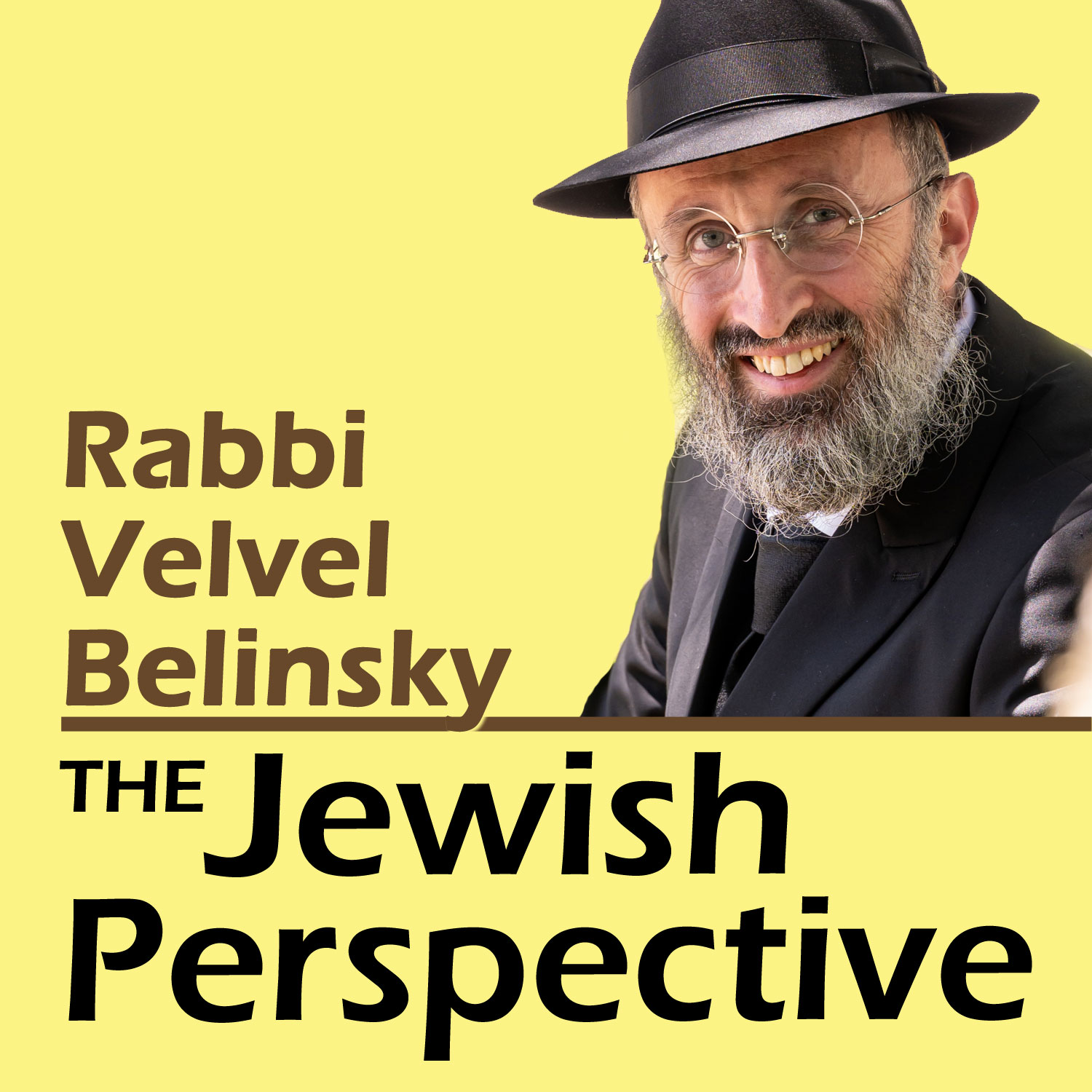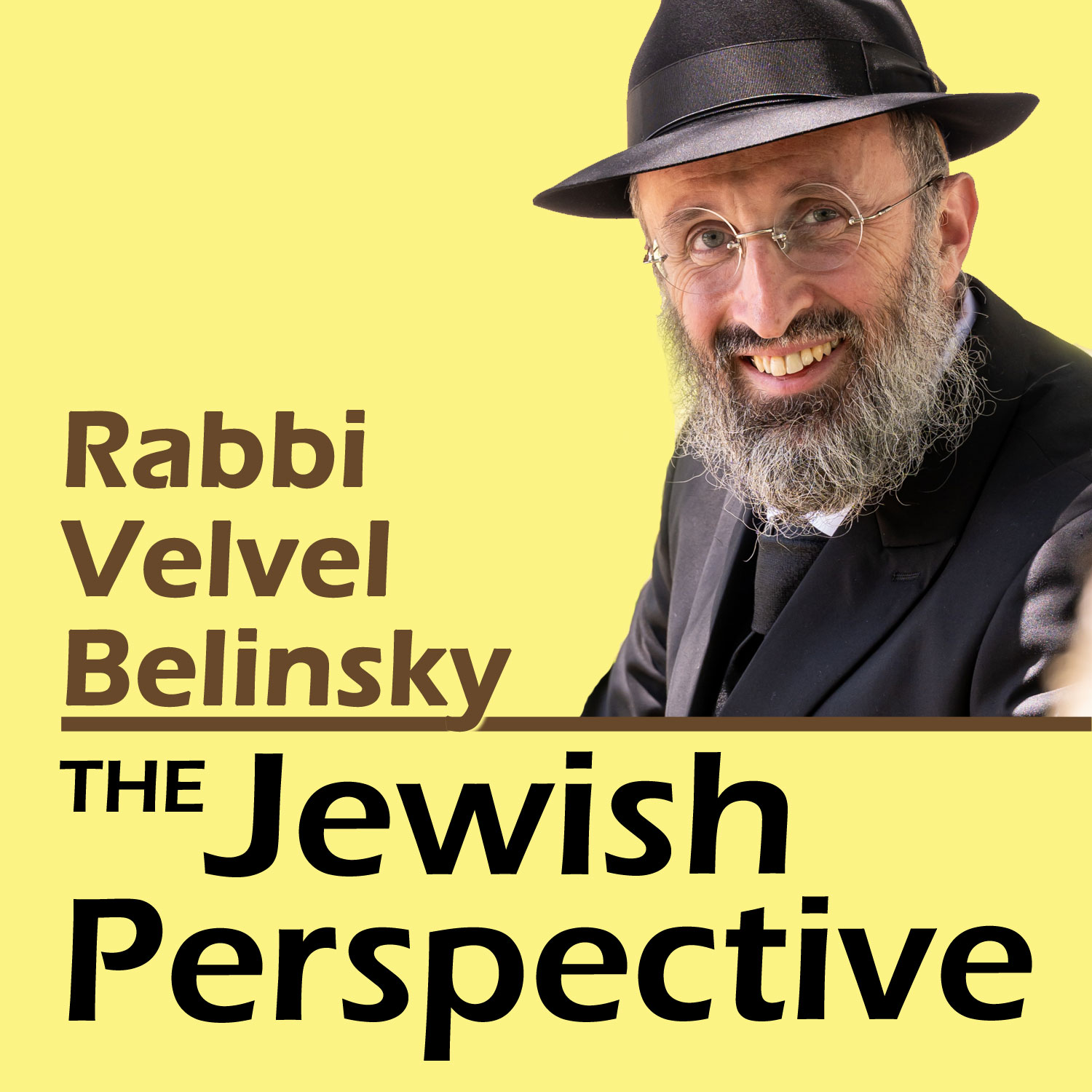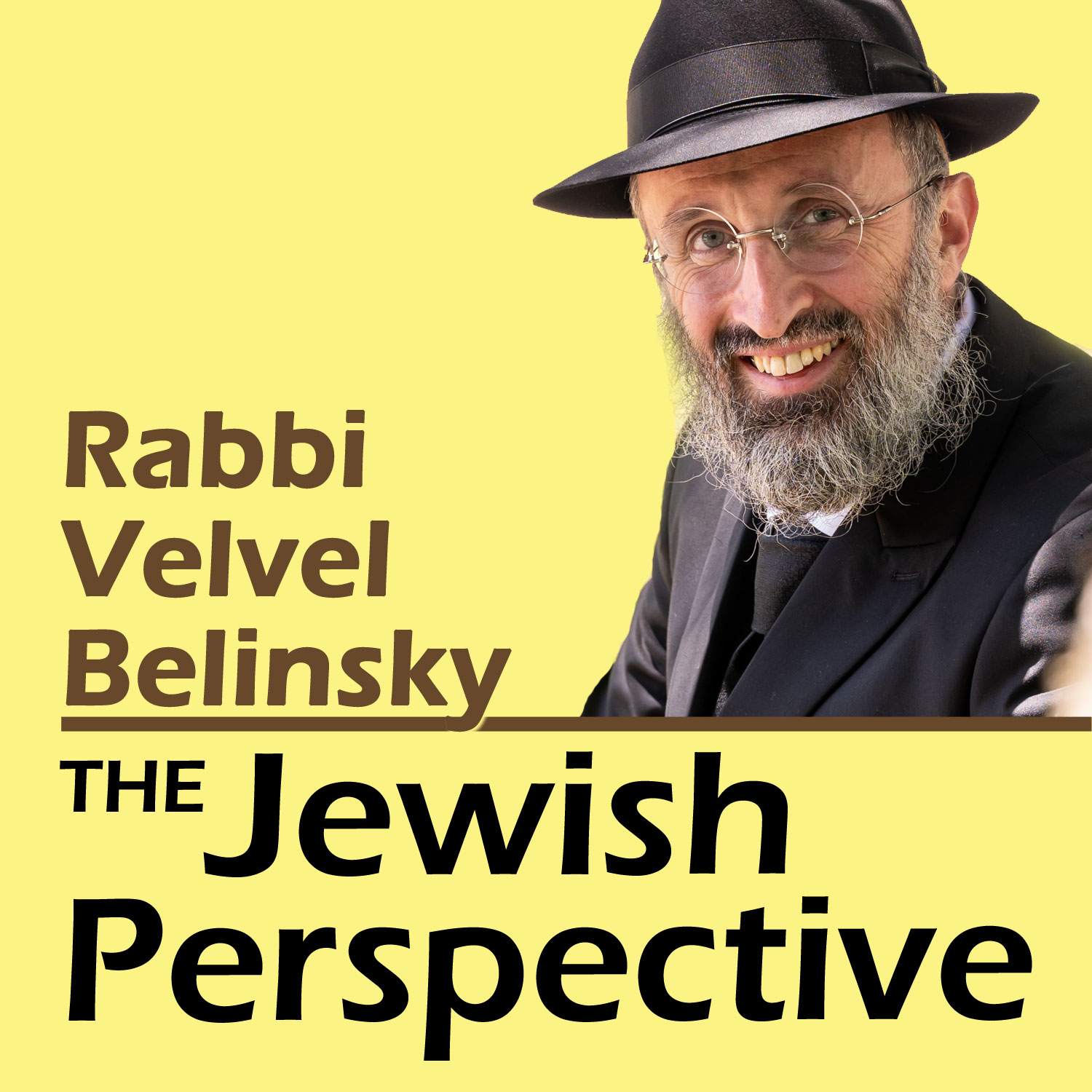Episode Transcript
[00:00:00] In the Torah portion of Kit Yisa, G D tells Moshe to count the Jews. But how do we count the Jews? We count the Jews by each one contributing a coin of half a shekel. And then we count the coins. So in other words, we're not counting the Jews individually. We are counting the coins that they contribute. And if you heard there's a Jewish custom not to count people, and it comes from exactly there. Because it says that if you count something, which is a lot, if you count somebody in great numbers, then it could create ay ne hara evil eye. And in order for evil eye not to be effective, we don't count people, we count something else. Like, you know, when you come from Minyan, they always tell you, we count yarmulkes, we count kippas. Or they don't count. They use a verse that has 10 words, words in it. One of the famous verses that they use is a verse that has 10 words. You go, and then there is a famous chabad tune to this verse. And then that's why they say that for a chabad you need 15 people. Because the chabad tune goes, that's why for chabad you need 15 people. So we don't usually count people. God says here to count the coins. And God says that these coins supposed to be given not only for counting. Counting is just a side benefit of this mitzvah. God says each Jew should give a half a coin to redeem as a redemption for his soul. And it said that Moshe had a hard time understanding what it means. And God had to show him a coin. And it says it was a coin of fire. And this is how Moishe understood what Jews supposed to be giving. So it's a little bit strange. First of all, God told Moishe that each Jew should give half a coin and there should be redemption for his soul. What is there not understood? There's a mitzvah that every Jew should take out from his pocket half a coin. I mean, half a shekel and give it. That's it, that's the mitzvah. And then G D says it's redemption for their soul. So why is it that Moshe had a hard time understanding? Moshe was not a bad student. He has understood all of the instructions till now. What did Moshe had a hard time understanding? It is explained in Hasidos that Moshe had a hard time understanding the connection between a coin and a soul. How can a coin be redemption for a soul? Every mitzvah has a reward. We know that G D rewards us for good things. And punishes us if, God forbid, do something bad. And it doesn't necessarily have to be an intrinsic connection between the two things. If a person falls and gets a bruise on his forehead is a result of him falling, but there's no intrinsic connection between the bruise and the fact that he tripped on the floor. Just one is a consequence of another. The rewards that we get from God are consequences of our good behavior. The punishments are consequences of people's bad behavior. So it does not necessarily have to be an intrinsic connection between the two. And the proof of that is that I know some people that fell and got a bruise on their head, other people who fell exactly the same way and broke their arm. So if it would be an intrinsic connection between a bruise on the head and falling, that everybody would get the same bruise in the same place when they fall. But some get bruises on their head, others have their arms break. Some, a third person felt exactly the same way. Nothing happened. So there's no intrinsic connection between cause and effect here, between the action and the result. So same thing with how God is giving us rewards and giving us punishments. God forbid. Here when God is talking to Moshe, he's implying something different. God is saying that this coin will be redemption for your soul. In other words, there is an intrinsic connection between a coin and a soul. With regards to all other mitzvahs, God doesn't say, you shall keep Shabbos, so you will have this and this and this specific reward coming every time after you keep Shabbos. But here God makes a specific connection between a coin and a soul. So Moishe is trying to figure out how can it be a connection between a coin and a soul. Not only they're different, they're very opposite. Why? Because a coin is something physical, not only it's physical, it's money. In people's perspective, money is the epitome of something physical and something material. Self interest, selfishness. We were just speaking about Karl Marx. He wanted to eliminate money because he believed that this is the cause of all of the negative tendencies that people have. Jealousy and greed. So that's what money represents. Not only that, also physically, money comes from gold and silver. These are metals which are deep in earth. They are, we get them from under the ground. That's how the Torah is showing that they, money truly represent something most material, because they are not even on the surface of the ground, they're deep in the ground. Now how something like this could be a redemption for a soul which is so spiritual, God could have said, this will Be redemption for them. Them means a person, a body, together with a soul. Or it could be redemption for their lives. Life implies a body, physical life. God specifically says redemption of a soul. So Moishe, being a smart man, is having trouble figuring out how does a coin, the most physical thing, can be connected intrinsically to a soul, which is something so spiritual. And this is why God was answering this question by showing him a coin of fire. What's a coin of fire? Coin is a coin, coin of fire. Silver usually doesn't burn. It's metal. It could melt. For silver to be on fire is not a very common thing. So what is coin on fire? Fire. It's the most spiritual, all physical elements we have plasma, which is the material of fire, if you can say so, is the most spiritual of all material elements. Fire is the most spiritual of the physical elements. Or we should say it's the least physical of all of the physical elements we have. Because physicality is a gradation, just like spirituality is a gradation. Things which are more physical, they're seen as such, by the way. This is how laws of gravity are explained in Kabbalah, in Jewish spirituality. Every physical object is drawn towards what? Towards something more physical. Physicality is drawn to a bigger physicality. That's why we are all drawn towards the Earth, because it's the biggest mass that we have near us. If we would be somewhere, you know, on a different planet, we would be drawn towards it because it will be the biggest mass we have. So physicality is drawn towards physicality. And the more physical something is, the more it's drawn. That's why gravity of bigger and heavier object is greater than gravity over smaller and lighter objects. So fire, it's a physical thing we can see, has a color. We can see it. We could feel it. So it's a physical thing, but it's the least physical of all the physical things. And this is why it is running away from Earth. It's going up, not down. It's moving up. Why is it moving up? Because just like we know that gravity is pulling all the things, physical things, closer to each other. Why? If you put a ball in the water, it's going to float, right? Why? Because ball is lighter than water. Water pushes it out. You know why? Because physical things don't tolerate something which is less physical. Physical things want to be closer to physical objects, closer to more physical objects that are drawn to physical objects, and they don't tolerate anything which is less physical than them. A ball or even a piece of Wood that floats is less physical by volume than water. And water says, I don't want you here. Get out. Same thing why a helium balloon is floating up? Because air says, hey, you are lighter than me. You are less physical than me. I don't want you here. Make space for me. So the only reason why more condensed matters don't do the same just because they don't have a chance. So now we understand that plasma is going up. Why? First of all, it's the most spiritual or the least physical of all of the things we have here. But also it's drawn upwards all the time. It's drawn away from everything physical that we know. It's lighter than air. And this is why soul is a metaphor of a flame. Because it is tied to a wick in the bottom and it's going up just like a soul is tied to the body on the bottom and it's always going up. Now we understand why God had to show to Moishe a coin of fire. What's a coin of fire? He's explaining to him that this physical thing can be fire can be like a soul. Really, we humans are an anomaly. We humans don't make any sense. Why? Because everything else in this world, either physical or spiritual, even animals, their soul is a physical soul. Animals have a soul, but what is their soul busy with? Providing their physical needs. Their soul is subservient to their body. If it is better for body to eat, the soul is going to push the body to eat. If it's better for a body to sleep, the soul is going to push it to sleep. The soul is at service of their bodies. We humans have a soul which can override our bodies. Our soul is in charge. Our soul is living independently of bodies. That's why we humans have dilemmas that we need to deal with. That's why we humans are often torn into different directions. Our body wants one thing, our soul wants another thing. That's why we humans have to make choices. Animals don't have to make choices. Animals follow their script, they follow their instincts. We humans have a soul which is the most godly thing, and a body which is the most physical thing. As a matter of fact, you know that our human bodies are made from earth, from dirt. That's why we are called Adam. The first man was called Adam from the word Adama, which means earth. So his body is from earth. His soul was blown into his nostrils by God. This is two opposites. And we exist only because of this anomaly. That's why we are meant to connect the spiritual worlds with the physical worlds. That's what we humans are meant to do. That's our mission. Animals cannot do that. Angels cannot do that because they're totally spiritual. They have no any connection to anything physical. They cannot speak to anything physical. Inanimate nature or animals or plants have only physical part of their lives. They don't have anything spiritual. We are this bridge, and we are meant to connect the two. That's our mission. So how do we do that? So God tells Moishe, you do it with a coin. Coin, the most physical thing, can become something spiritual. We would think till now that a coin will always be a coin, but it can be used for something spiritual, and that would be great by itself. The coin itself can become spiritual. The coin can become holy. This is why, by the way, in the times of temple, if somebody would exchange animals for money for some sacrifices the Jews were supposed to bring to the temple, they were allowed to not slap the animal with them through the whole country. If I want to bring a cow, I'll have to get a plane ticket with a cow. I don't know which airline accommodates cows. So it'll be very difficult to get a cow with me into Yerushalayim if I live somewhere in the, you know, in the far north, right? So Spirit Airlines doesn't provide enough legroom for a cow. So what were Jews allowed to do? They would take this cow, sell it, and bring this money to Yerushalayim, and with this money, buy another cow and bring it for sacrifices. But the thing is, usually we think of money being fungible in our mind. I, for example, you are a reseller, right? You are a middleman. You buy wholesale and sell retail, right? So you take this computer and you buy it from the factory. You give them, for this computer, $1,000 a person is buying it from your store. He's giving you thousand dollars for this computer? Well, hopefully more than 1000. Hopefully you made something in it. He's giving you 1000, 200. My question is, is the. Out of the 1200, he's giving you 1500. Usually retail markup is like 50%. He's giving you 1500. Out of the 1500, the thousand, is it the same thousand that you gave to another guy? No, it's not the same thousand. It went to your account. You don't even know which thousand is which. Money, for most part nowadays are electronics. It's numbers. You don't know if this is the money or not, and you don't care. Even if it would have always handled with physical money. If I give you $10 to give to your friend from me, I give you $10, you put it in your pocket. Then when you meet your friend, you get another $10 in your pocket. You want to think, is this the $10 that I got or not? Nobody thinks about it. When Jews were going to bring sacrifices, they were not allowed to do that. The very money that I sold the cow for, this very bill, this very hundred dollar bill, whatever it was, I don't know how much cow cost back then for sure didn't have US Dollars. This very coin, this very bill has to be used for buying a cow in Jerusalem. Why? Because this money became holy. So physical objects come holy. And here's another thing. Till now we were speaking about a sidur being a holy book. So you have a book which is holy. A mezuzah is a parchment which is holy. Why is mezuzah holy as a parchment? Because it has holy words on it. Okay, so that's understood. I take a paper, I could write some other words in it. I could write Shakespeare, I could print Shakespeare, or I can write words of Torah. So if I write Shakespeare, it won't be holy. If I write words of Torah, it's going to be holy. But this is because of the content of whatever is written. Here we are saying something else. It's not because of content, because it influenced itself, becomes holy. It's not even content. A coin can become holy. So when Jews were giving this half a shekel as a redemption for their soul, what does it mean? They were saying that we are here to make the physical world around us holy. And why was it called redemption for their soul? Because that's what their purpose is. What does it mean? I redeem, I redeem this. In this person, I redeem this. In this object I redeem, I set free. But what I set free, I set free for doing its purpose. So when the soul is doing its purpose, which is making physical objects spiritual, that's when it's being redeemed.


